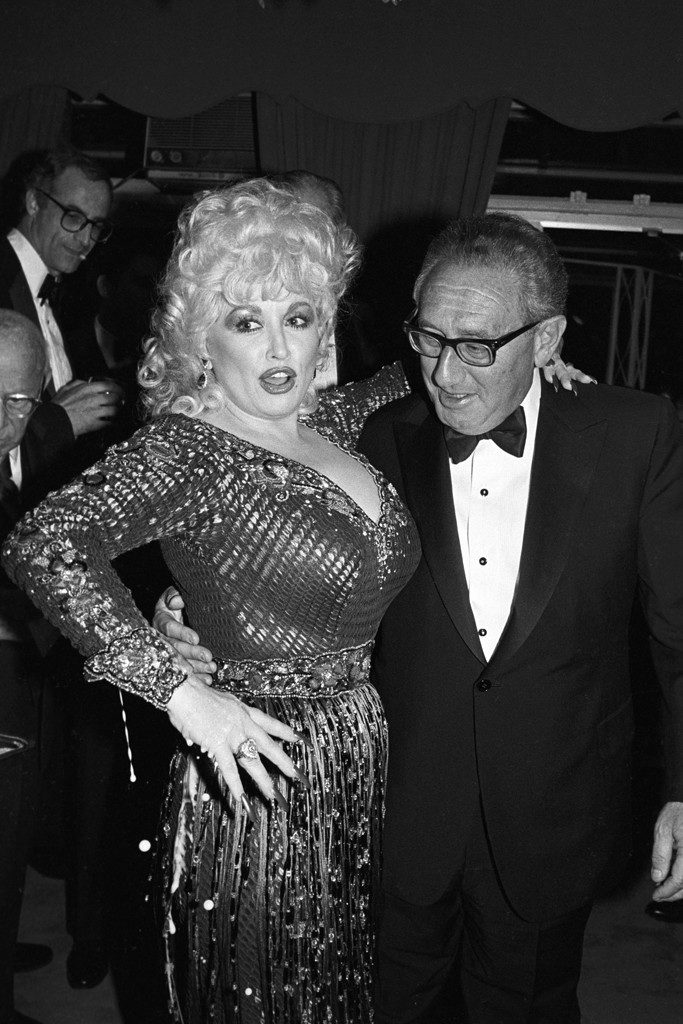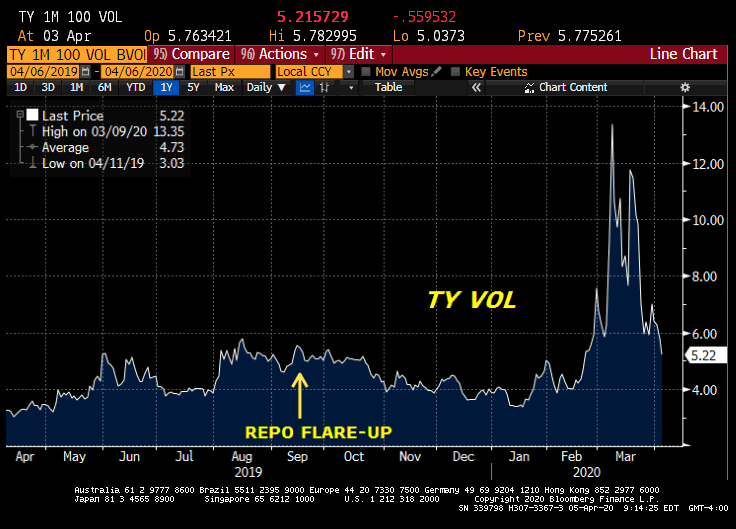Kissinger
April 5, 2020 – Weekly Comment
A friend of mine told me and Doug Kelley this story as we were standing on the CME trading floor at our booth years ago. This was in the time period where the employment data would come out on Friday, there was a surge of business and price adjustment, and, if not too crazy, a break for the Merc club where there would already be locals getting an early start on the weekend with a Budweiser or two. Anyway, this colleague related the story of one of his friends, who had a respectable international business and was interviewing candidates for a job opening. He met the candidate in the reception area and they walked down the corridor towards his office. Hanging in the hallway was a picture of Henry Kissinger. The job candidate stopped and asked the owner, “Is this your father?” And the owner said, “Why, that’s Henry Kissinger.” To which the surprised candidate asked, “Henry Kissinger’s your father?!” Without missing a beat Doug loudly made the the WRONG tv game-show buzzer sound. “Next.” That one always makes me laugh, courtesy of Bob Royals.
My friend Doug Kelley passed away a couple of years ago. But Henry Kissinger is still going strong. On Friday he penned an op-ed in the WSJ, ‘The Coronavirus Pandemic Will Forever Alter the World Order.’ Look, I know Henry Kissinger is an insightful statesman with legendary intellectual and diplomatic skills. But anyone glancing out the window at empty streets knows things have changed, some forever. I’ll relate some of those changes to rate markets later. But first, Henry Kissinger. What an incredible set of girlfriends! Candice Bergen, Jill St John (played Bond girl Tiffany Case in Diamonds are Forever), Shirley Maclaine, Liv Ullman (who called Henry “the most interesting man I have ever met”). This guy is not only witty and interesting, but a great listener with supreme powers of observation.


One of Kissinger’s key observations in his op-ed is. “The pandemic has prompted an anachronism, a revival of the walled city in an age when prosperity depends on global trade and movement of people.” Many asset prices depend on a rapid return of global trade. My own thought is that we’ll be somewhere between the walled city and the previous paradigm of open borders with near frictionless movement of people and goods. No matter what, friction will increase, whether due to supply chains setting up domestically and businesses building just-in-case inventories, or due to fear of transportation risks. Goldman and John Mauldin’s Frontline report (citing Canaccord Genuity) note another important factor with respect to asset prices, a suspension in company share buybacks. Goldman’s David Kostin notes that buybacks have represented the single largest source of US equity demand in each of the last several years. The age of corporate boards returning money to shareholders, and more importantly, themselves, through buybacks and dividends is not going to recur any time soon. Now we’re going to hoard capital like toilet paper. The question is, have asset prices already priced the new world order, or is there more to come? I think the next two weeks will be quite important in that regard. Trump and health experts have warned of increased deterioration related to the virus. A deepening rift between Russia and Saudi Arabia has caused a delay in the OPEC+ meeting from Monday to (hopefully) later in the week. (Russia has turned the accusation of trying to destroy US shale producers back on KSA). Oil will likely give back a big chunk of last week’s rally, though I expect WTI to hold above the lows of around $20/bbl. (CLK0 Friday to Friday change 21.51 to 28.34). Treasury yields ended the week at historic lows, with 2’s at 21 bps and 10’s at 59 bps. Importantly, 30’s held well above the early March low of 100 bps, ending at 121 bps. A positive curve goes a long way in building bank capital. Both the Fed and the administration are doing everything possible to plug the gap filled by the cessation of global demand. SPX ended the week down about 27% on a closing basis from the Feb high, and had lopped a third off the top at the low settle on 23-March. My expectation is that, like oil, stocks will hold above the recent lows for now. It will be a positive sign over the medium term if the market can absorb more bad news without new lows. In ESM0 2635.75, which was last week’s high, is a key level to close above.
As mentioned last week, I think a tightening libor/ois spread will go a long way in signaling that credit markets are responding to the Fed’s efforts. Three month libor set at 1.387% on Friday, vs a Fed Effective rate of just 5 bps on Thursday. EDJ0 settled 98.73 or 1.27%, so there is still over 11 bps worth of convergence to occur this week. EDU0 settled 99.63 or 37bps, 100 bps below the current libor setting. I.e. the market expects eventual success from the Fed. Of course, part of that effort may entail Yield Curve Control, and perhaps that’s part of the reason for the huge adjustment in treasury vol back to more normal levels. Remember when the Fed was wringing its hands over the mid-Sept repo flare-up? Well we’re back to that level.

The near part of the ED curve suggests expectations that money markets will improve. Treasuries have already adjusted and vol indicates that the market is comfortable with these general levels. Oil should seek a level around $30/bbl. Corporate downgrades will still occur, but perhaps at a slow enough rate to absorb without panic sales. The gov’t GDP plug will go a long way to keep the gears turning. The dollar strengthened through the end of the week, but hopefully the Fed’s CB swap lines will deter a move back towards recent highs. One large risk is that there is now a mentality of “I don’t have to pay, because the virus has damaged me and the government owes me.” The example below is from Canada, but given the open flow of information through social media, I think it’s likely across the US as well. “There is a movement right now in the City of Vancouver – on Facebook and Twitter and social media – where there’s this call of unity to band together and not pay rent… There is a domino effect.” This article, from BIV.com says that in British Columbia up to 50% of tenants are not paying rent. This is where governments have to show leadership and not let fraying get to the core fabric of the payments system.
| 3/27/2020 | 4/3/2020 | chg | ||
| UST 2Y | 25.5 | 20.9 | -4.6 | |
| UST 5Y | 42.0 | 36.4 | -5.6 | |
| UST 10Y | 73.6 | 58.5 | -15.1 | |
| UST 30Y | 132.5 | 121.2 | -11.3 | |
| GERM 2Y | -68.4 | -66.2 | 2.2 | |
| GERM 10Y | -47.4 | -44.1 | 3.3 | |
| JPN 30Y | 41.5 | 38.6 | -2.9 | |
| EURO$ M0/M1 | -31.0 | -24.0 | 7.0 | |
| EURO$ M1/M2 | 9.0 | 8.5 | -0.5 | |
| EUR | 111.69 | 108.10 | -3.59 | |
| CRUDE (1st cont) | 21.51 | 28.34 | 6.83 | |
| SPX | 2541.47 | 2488.65 | -52.82 | -2.1% |
| VIX | 65.54 | 46.80 | -18.74 | |
https://www.mentalfloss.com/article/26022/5-things-you-didnt-know-about-henry-kissinger
https://biv.com/article/2020/04/bc-landlords-seeing-50-tenants-not-paying-rent

